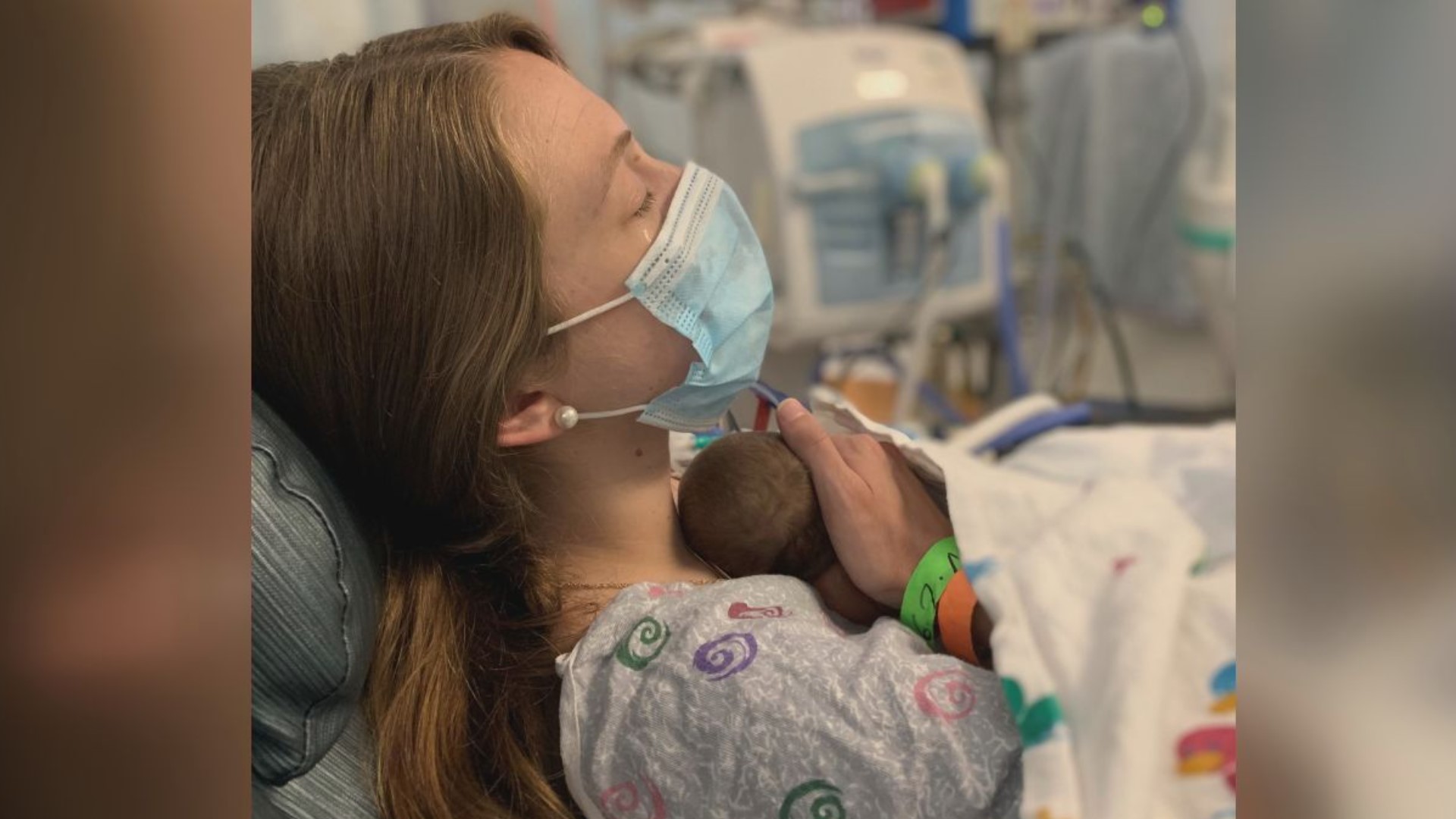MOORE COUNTY, N.C. — A North Carolina couple is on a heartfelt mission to turn grief into good – in their son’s honor – as COVID-19 cruelly targets pregnant women and their babies.
THE IMPACT
Thirty-one-year-old pharmacist Jenny Gooch and her husband, Garrett, were thrilled about their second child – another son – due in August 2020.

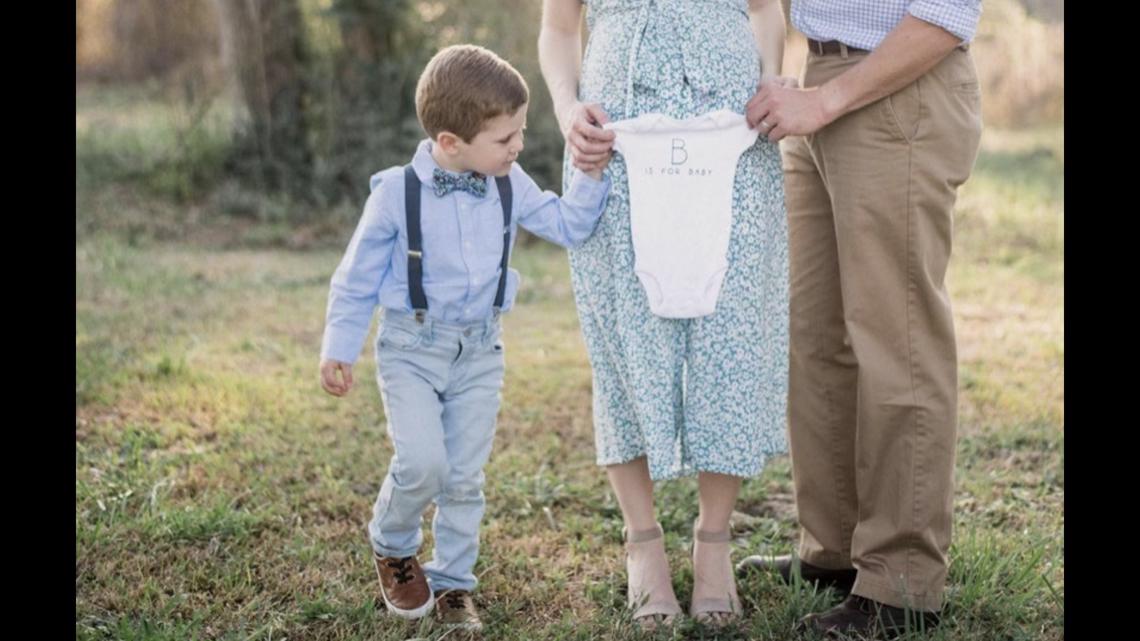
However, in the spring that year, the world started changing, and Jenny Gooch learned of a workplace exposure to COVID-19. The virus was new, and a vaccine wouldn't be available until months later.
“It was all kind of, honestly, a blur – a lot of panic. Everyone was nervous,” she recalled.
Soon afterward, she started feeling ‘off.’
“I was waiting on my (test) result. I started feeling like I wanted to put a sweatshirt on in the house,” she said.
Her husband thought it was peculiar when she woke up from a nap and mentioned she couldn’t taste her coffee.
Just shy of 24 weeks pregnant, she became FirstHealth of the Carolinas’ first confirmed COVID-positive pregnant patient, and her concerns immediately centered on her unborn baby.
“Prematurity at that age is very, very risky,” explained FirstHealth obstetric gynecologist John Byron, MD.
Byron was her doctor – and, later, a trusted confidante.
“She had COVID, she was in isolation, it was early on (in the pregnancy), so it was already high-stress for her, and a lot of the people taking care of her, too, because at that point in time, everyone was fearful of contracting COVID, themselves,” he said.
Byron had volunteered to take her case, having just recovered from his own infection – the first confirmed case in Moore County. He knew, despite Gooch’s good health and smooth pregnancy thus far, the COVID risks were grave.
“Definitely, if she had not had COVID, I do not think that would have happened,” he said.
What happened was the beginning of a nightmare.
“The contractions just kept coming, and they started more frequently. I was just laying in bed praying they would stop, and I realized they weren’t going to,” Gooch remembered.
She drove herself back to the hospital that had just discharged her.
“Everyone who was there was like, ‘I can’t believe this is happening.’” she said.
With no family allowed and no time to think, she delivered her son, Grady. Swiftly, a NICU team took him away to airlift to the NICU at UNC Children’s Hospital.
“I tried to get four quick pictures of him going through the exit to the helicopter,” remembered Garrett Gooch.

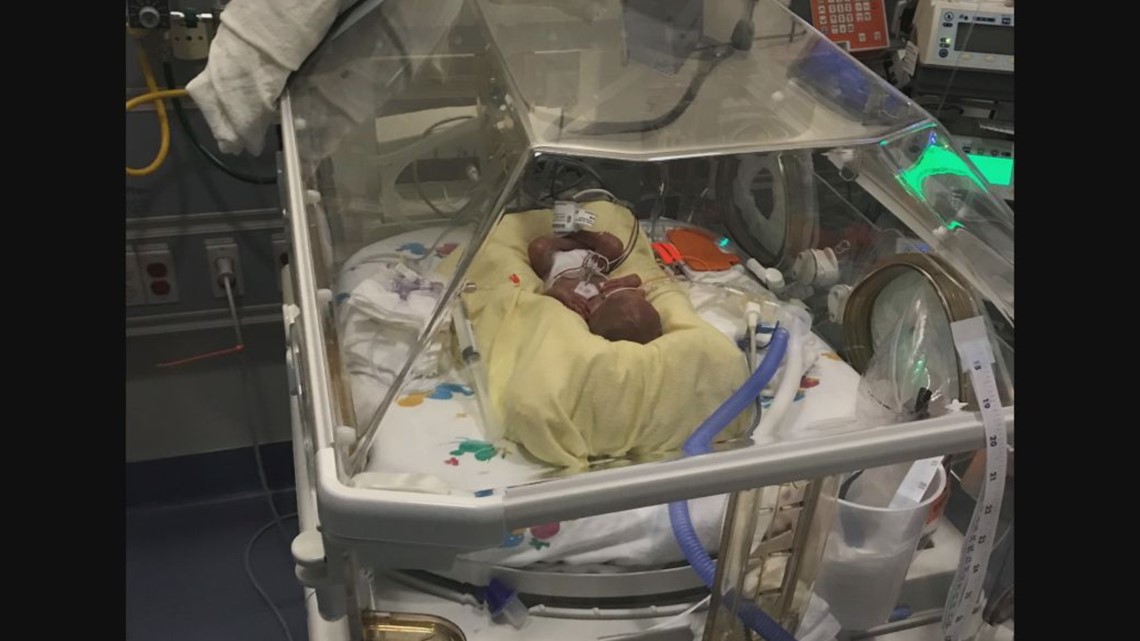
Only Dad could follow (once testing negative) and give updates. His wife was still positive for COVID-19 – 12 days after her initial test.
“Because this test we were using was this PCR test and was so sensitive, people would be positive for months,” explained Gretchen Arnoczy, MD.
Arnoczy was Jenny Gooch’s infectious diseases physician and, coincidentally, a friend. Thus began her mission to help change UNC Hospital’s COVID testing rules for mothers.
“We knew she wasn’t contagious. The (PCR) tests and what they pick up (later in the infection) is some dead virus particles…but we didn't know that at the time – it was so early (in the pandemic),” she said.
Two and a half weeks after Grady’s birth, Jenny Gooch finally held her son for the first time.

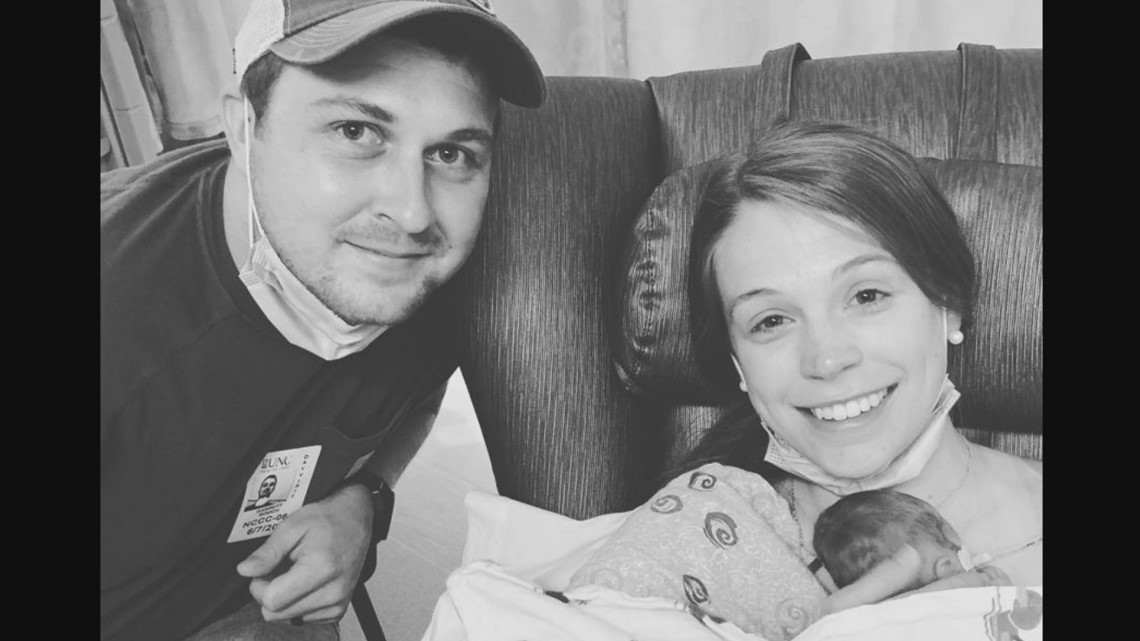
“The day she was able to go and see Grady was truly a gift,” cried Arnoczy.
It was a gift that came just in time. Suddenly, Grady’s good progress took a turn, when he contracted a non-COVID infection his tiny body just couldn’t fight.
“They (the doctors) said, ‘We just want to let you guys know that we think – we think this is gonna be the time to say goodbye,’” his mother recalled.
Painfully, she remembered the final moments.
“All the physicians were there that day that had been taking care of him – because everyone was so invested in making sure Grady got home – everyone came and surrounded us, surrounded him, as he left,” she cried.
One day shy of one month old, Grady died in his mother’s arms – an outcome completely out of their control, but one they grapple with every day.
“It’s been – I guess I don’t talk about it much,” admitted Garrett Gooch tearfully.
His wife often wonders, "What, if?”
“I will always blame COVID for his very early birth, and had I not caught COVID when I did during pregnancy, I do feel as though Grady would be here with us,” she said.
THE RISKS
Tragically, their COVID pregnancy story is one of many.
“In recent months, with the surge of the Delta mutation, we have had several pregnant ladies unvaccinated with severe COVID pneumonia. Unfortunately, in October, we had one pass away,” said Walda Pinn, MD.
Pinn is an obstetric gynecologist with Central Carolina OB/GYN and delivers babies at Cone Health. She explained pregnancy decreases a woman’s immune system, increasing her chances of severe complications if she contracts COVID. The virus ups the risks for pre-term labor, cesarean delivery, maternal death and stillbirth – consequences that, now, are largely preventable.
“They’re all unvaccinated,” Pinn said of the pregnant patients she has seen hospitalized with the most severe COVID outcomes.
“I implore my patients to please get the vaccine,” she said.
THE VACCINE
In summer 2021, the leading OB-GYN organizations – American College of Obstetricians and Gynecologists (ACOG) and Society for Maternal-Fetal Medicine (SMFM) – and CDC formally recommended the COVID vaccine for pregnancy.
Even still, available data shows only 40% of expecting women are vaccinated, and half of them got the vaccine prior to pregnancy.

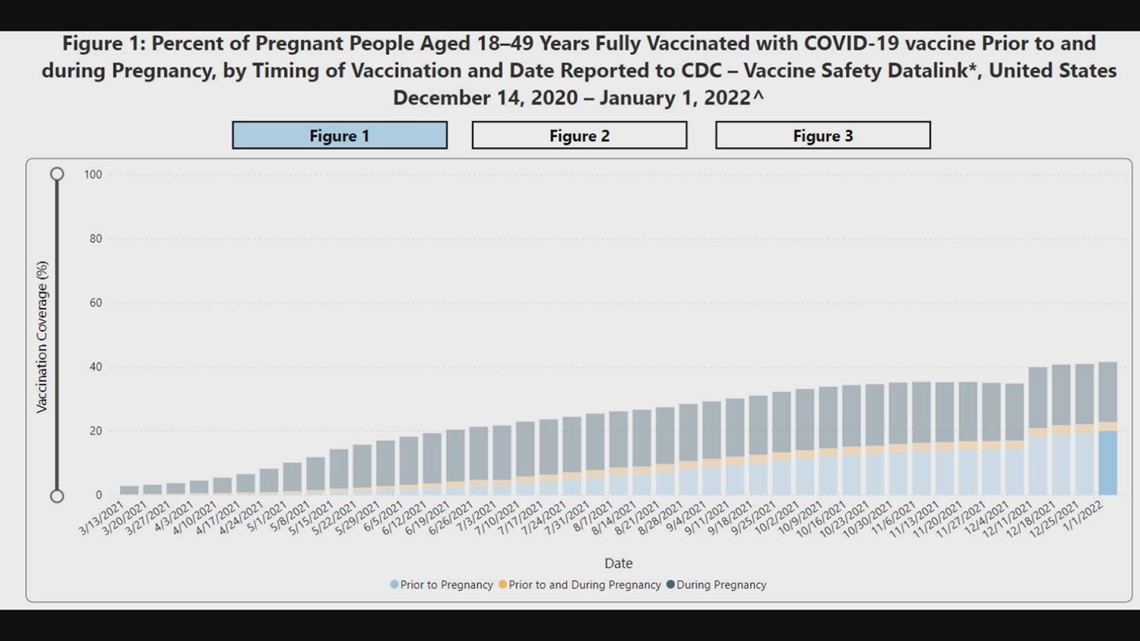
“There is still a huge amount of hesitancy. A lot of that is because of misinformation and disinformation,” Arnoczy acknowledged.
Perhaps the biggest source of hesitation is false information about the vaccine’s tie to infertility. Research continues to disprove any link between the two, and a study at an IVF clinic in Israel even showed a slight increase in pregnancy success after vaccination.
Arnoczy added, “We do think fertility is more affected by a COVID infection than by the vaccination. Knowing that pregnancy does put you at higher risk of severe COVID and getting put into the hospital, ICU, vaccination for pregnant women is certainly the best thing.”
Pinn explained, "Though women can still get coronavirus when they’re vaccinated...the symptomology is much milder – if not asymptomatic – so we know vaccination is a good way to prevent these ICU admissions and potential intubation, potential pre-term delivery..."
Both Pinn and Arnoczy emphasized the vaccine (including the booster dose) is safe in any trimester of pregnancy. The shot also has indirect benefits for unborn and infant babies.
“When a woman is pregnant, and she gets vaccinated or boosted, some of the antibodies pass to the babies,” Arnoczy explained.
The same is true for breastfeeding infants.
However, for Jenny Gooch, the vaccine came months too late.
“If Jenny could go back to being Jenny in that (isolation) room in May 2020 and spending a month away from her family and losing her son, I would just want to say I would have prayed for a vaccine and anything that could protect us,” she said.
THE MESSAGE
In 2021, the Gooch family found answers to those prayers. Jenny Gooch got the shot and a much bigger dose of faith – a baby girl, whom they know was Heaven-sent.
“Now, we have a healthy seven-month-old attempting to crawl around. Keeps us on our toes, for sure,” smiled Dad.

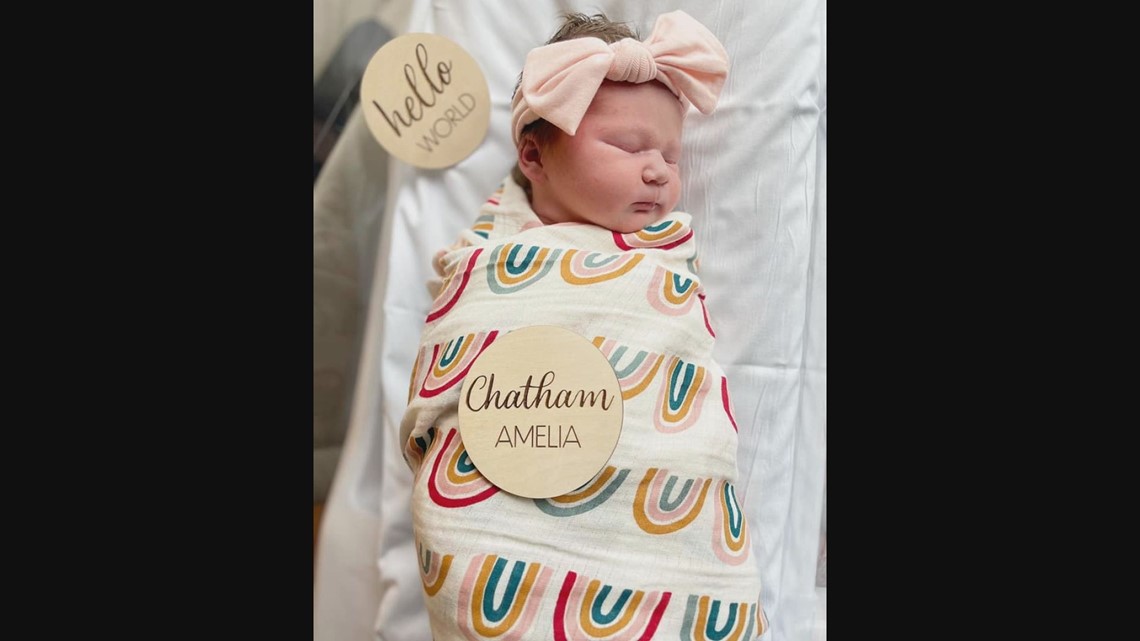
Yet, even amidst great joy, the grief can resurface.
“Sometimes, I still can’t believe that happened to us, and I can’t believe I had to watch a child take his last breath on earth in my arms,” Jenny Gooch said, tearfully.
The Gooches hope Grady’s lasting legacy – his impact – will be to save lives.
“His short life mattered a lot, and his story can help prevent what happened to us from happening to other people, just by letting people know how dangerous COVID can be, how COVID forced him into the world so premature,” Jenny Gooch explained.
That, she said, is her reason for sharing their pain.
“I just want his story to reach as many people as possible and to help save other pregnancies and other babies from enduring the same,” she said.
They also want to help other bereaved parents know this: after a storm, there is, sometimes, a rainbow – a silver lining of love and hearts full of hope, beating forward.

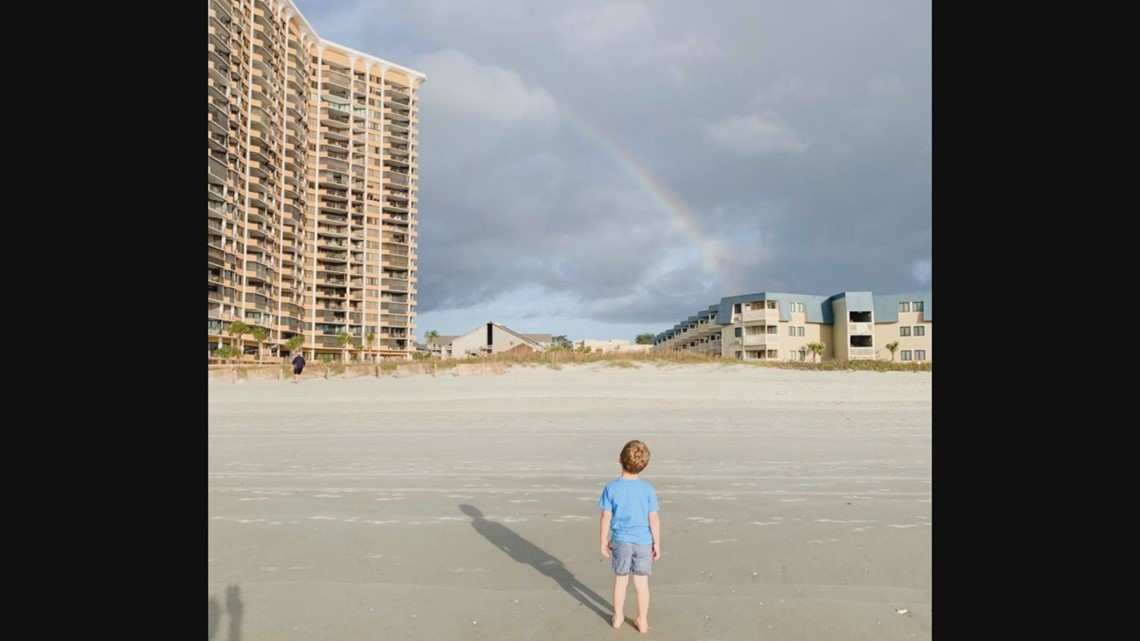
THE SUPPORT
The Gooches, like so many families affected directly by COVID-19, thank the healthcare heroes and communities who helped them navigate the unknowns, residual trauma and healing.
Jenny Gooch emphasized, “I just wanted to say how much we appreciated everyone in our community, how much we appreciated everyone in our friends’ communities – so many people who reached out and sent help and gave us love… We’ve been able to help other NICU families with donations and things we received for Grady, and we’re going to continue to be able to do that.”



